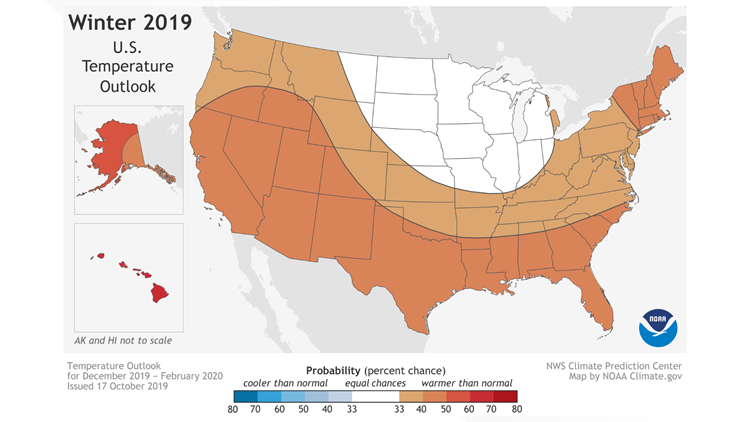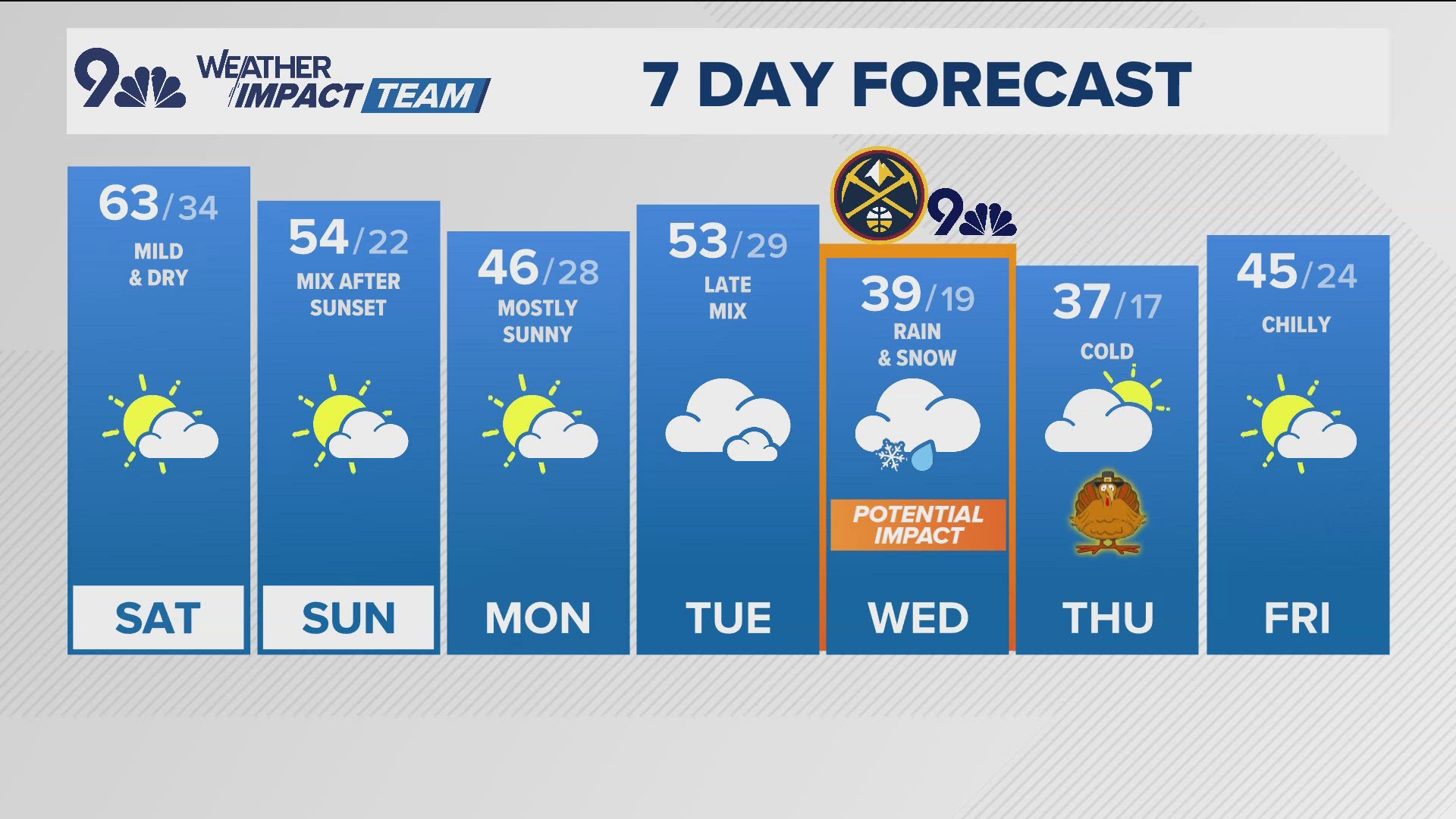COLORADO, USA — This winter, NOAA says there is no strong signal present that could tilt the odds of Colorado receiving above or below average snow. They call it equal chances.
Meteorologists have come to recognize a weather pattern called the El Niño Southern Oscillation (ENSO) as a strong indicator of how much snow will fall in the western United States.
That has helped NOAA be spot on with their snow forecast the past two years.

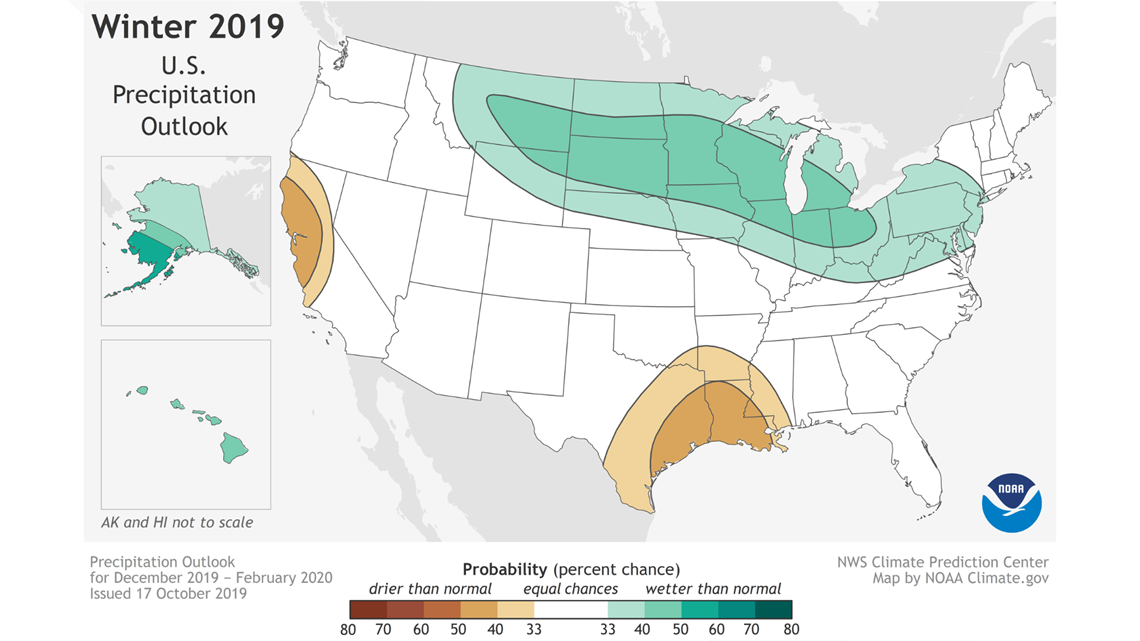
This winter though, it’s likely that the El Niño will be in a neutral phase. There’s about an 85% chance the tropical Pacific will remain ENSO-neutral through the fall, and a 55-60% chance of continued neutral through the spring.
Our last neutral ENSO winter was 2016-2017. That season dropped well below average snow in the Denver area (17.6 inches in Dec., Jan., and Feb.), and well above average snow in the mountains.
That season we were coming off of a La Niña, where this time we are coming off of an El Niño.
Denver averages 57 inches per season (41 since moving the sensor to DIA), but our two snowiest months are in the spring: March and April. We average about 22 inches of snow over the winter months.
NOAA says there is good reason to believe that Colorado will end up with a warmer than average winter, especially in the southwest.

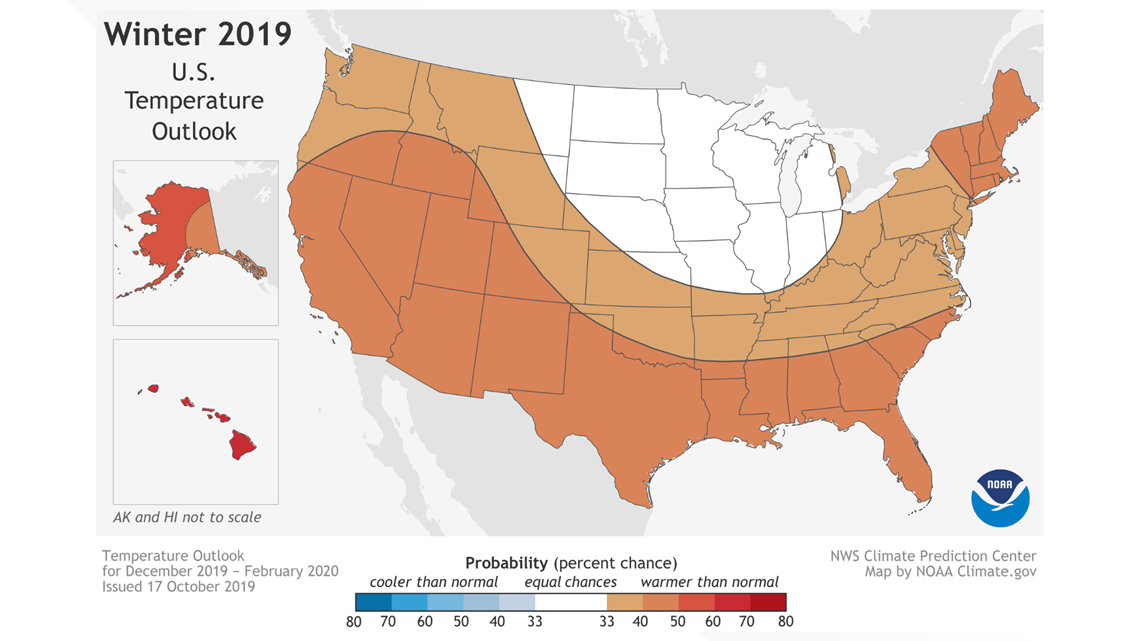
A jet stream trend is revealing itself that would bring frequent northern storm tracks, keeping a lot of the coldest air to our northeast.
Keep in mind that doesn’t mean you should leave your hats and mittens in the closet. Denver’s average winter temperature is just 31.1 degrees. Meaning yes, freezing would be a warmer than average winter.
While NOAA doesn't want to say there is a higher chance for a snowy winter, a couple other popular winter forecasts are not very shy about it.
The Farmers' Almanac calls for a frigid and snowy winter with a polar coaster jet stream.

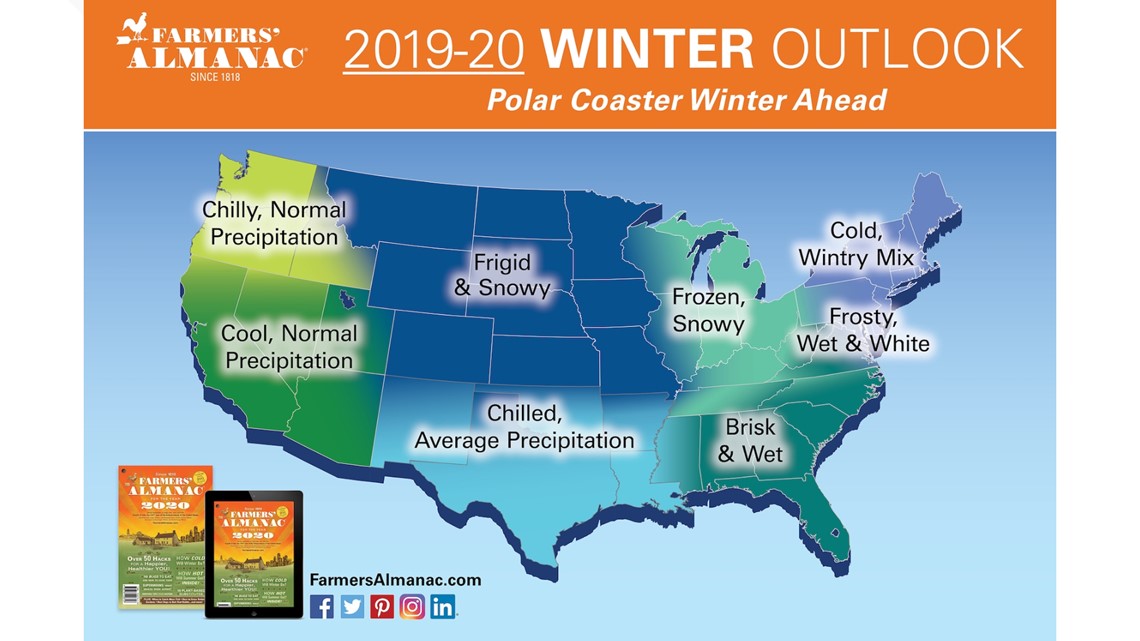
And the Old Farmer's Almanac shows the Front Range more wet than white. Which could mean more rain and melt than actual snowfall. And they have the mountains with low temps, and deep powder.

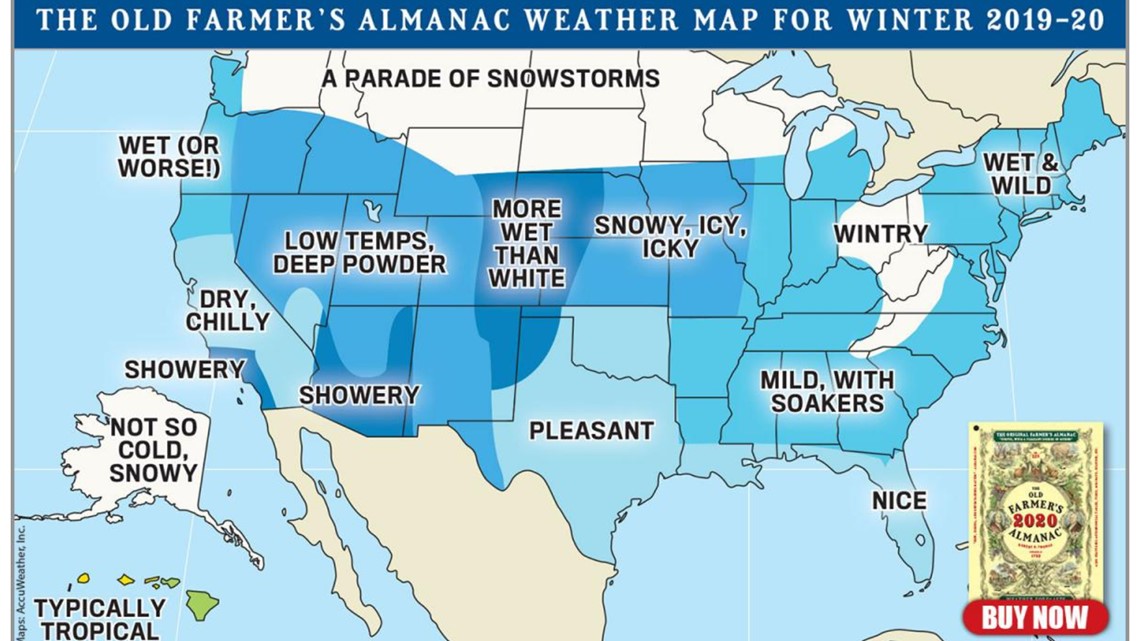
SUGGESTED VIDEOS | Science is Cool

